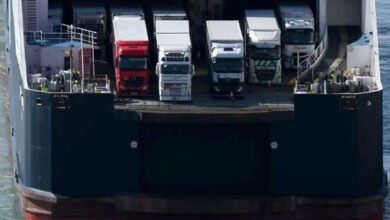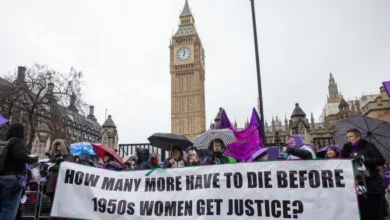British Foreign Minister expresses hope that any retaliation will not exacerbate tensions and urges G7 nations to impose sanctions on Iran; Germany’s leading diplomat also meets with the president to moderate the response.
British Foreign Minister David Cameron underscored on Wednesday that Israel is poised to respond to Iran’s recent drone and missile attacks, which occurred over the past weekend and represented an unprecedented escalation. Addressing the media in Israel following a discussion with President Isaac Herzog, Cameron articulated his hope that any Israeli retaliation would be executed in a manner that prevents further escalation.
Cameron’s visit was notably aligned with that of German Foreign Minister Annalena Baerbock, making them the first Western diplomats to travel to Israel in the wake of Iran’s direct assault. This visit happened amidst intensive debates among Western allies concerning an appropriate response to Iran, which had launched several hundred drones, along with ballistic and cruise missiles, targeting Israel from Saturday night into Sunday.
Highlighting the gravity of the situation, Cameron commented, “It’s clear the Israelis are making a decision to act. We hope they do so in a way that does as little to escalate this as possible.” He emphasized the importance of showing solidarity with Israel, advocating for coordinated G7 sanctions against Iran to counteract its aggressive actions and support for terrorism in the region.

During his visit, Cameron also stressed the necessity of a united stance from the G7 countries, which are scheduled to meet on the Italian island of Capri in the coming days. The British Foreign Minister called for a “clear and unequivocal message” to Iran regarding its backing of Palestinian militant group Hamas, its ally Hezbollah in Lebanon, and Yemen’s Houthi rebels, all of which receive support from Tehran.
The heightened tensions and the potential for a broader regional conflict were concerning points Cameron highlighted during his engagements with top Israeli officials, including Prime Minister Benjamin Netanyahu and Foreign Minister Israel Katz. In meetings that included discussions with Palestinian Authority Prime Minister Mohammad Mustafa, the overarching theme was the need for international solidarity against Iran.

Following the bilateral talks with Cameron and Baerbock, President Herzog issued a statement urging the global community to take firm and decisive action against the Iranian threat, which he described as a destabilizing force across the entire region. Katz, in his dialogues with the visiting diplomats, pushed for the Islamic Revolutionary Guard Corps to be officially recognized as a terrorist organization and called for impactful sanctions targeting Iran’s missile projects.
Baerbock, who had previously advocated for extended EU sanctions against Iran targeting drone production, reiterated the need for cautious engagement to prevent further escalation, speaking at a press conference in Berlin with her Jordanian counterpart, Ayman Safadi. She expressed hope that the upcoming G7 discussions would lead to unified action.
In the context of these diplomatic maneuvers, the United States announced impending sanctions against Iran’s missile and drone programs, anticipating that allied nations would follow suit with similar measures. This collective stance aims to mitigate Iran’s military capabilities and address the broader range of its problematic behaviors.
This series of events underscores a pivotal moment for international diplomacy as global leaders navigate the complex dynamics of Middle Eastern politics, seeking to maintain stability while addressing aggressive actions by Iran.






